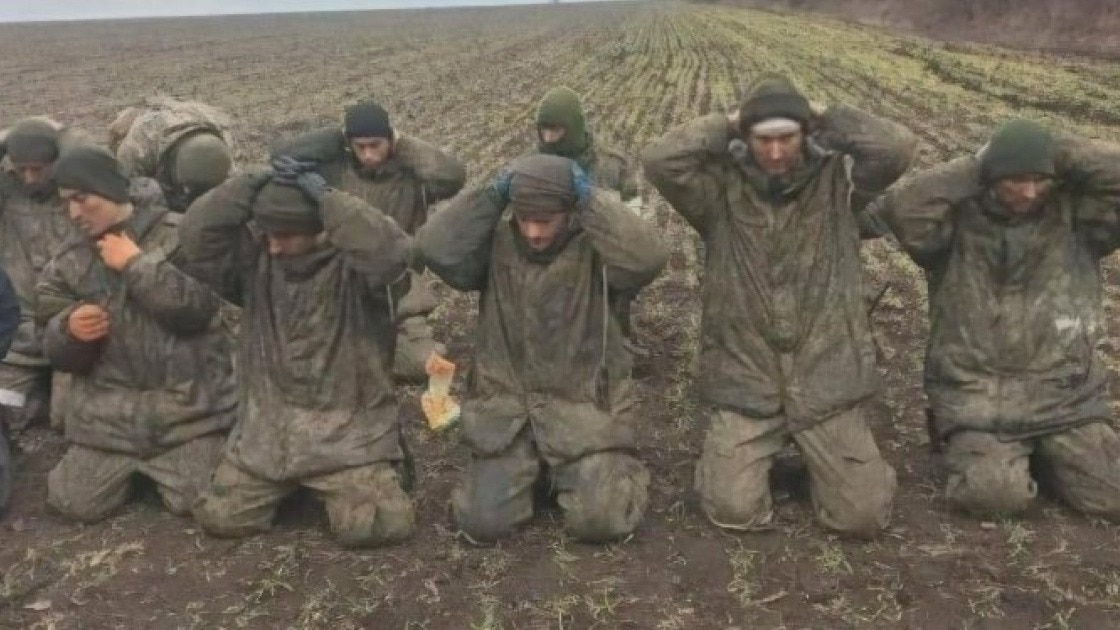2024-12-23 13:03:00
War has its rules. Rules designed to preserve a fragment of humanity even amidst the chaos of conflict. Yet, what happens when those rules are not only broken but obliterated—deliberately and systematically?
This is the grim reality reportedly unfolding in Russia, where prisoners of war (POWs) face unspeakable atrocities. The harrowing accounts of Ukrainian soldiers executed after surrendering paint a chilling picture of cruelty, lawlessness, and impunity.
A Year of Horror: The Systemic Execution of POWs
In just the past year, a staggering 127 Ukrainian prisoners of war have reportedly been executed by their Russian captors. These are not isolated incidents of battlefield violence; they represent a calculated and accelerating campaign of brutality. Since Russia’s invasion of Ukraine began in 2022, at least 147 Ukrainian POWs have been executed, with 86% of these killings occurring this year alone.
The Ukrainian government alleges that these executions are part of a deliberate policy, a claim underscored by a series of documented atrocities. This isn’t just a story of war crimes; it’s a tale of defiance against international norms and a global silence that risks normalising these horrors.
Grim Testimonies and Chilling Evidence
The brutality isn’t hidden; it’s captured in harrowing stories and damning footage. Consider the grim events of October: nine Ukrainian prisoners were stripped half-naked and executed in Kursk. Or the haunting video from September showing 16 Ukrainian soldiers lined up to surrender, only to be mowed down by machine-gun fire.
Reports also reveal unimaginable cruelty beyond the battlefield. Prisoners have been starved to skeletal frailty, tortured beyond recognition, and, in some cases, subjected to medieval savagery. One soldier’s body was discovered beheaded, while another was found with hands tied behind the back and impaled with a sword. Such acts defy comprehension and stand as a stark reminder of the depths of inhumanity to which war can descend.
A Mockery of International Law
Under international humanitarian law and the Geneva Conventions, the execution of prisoners of war is unequivocally a war crime. These conventions exist to protect individuals who can no longer defend themselves, ensuring a shred of humanity persists even in war.
Russia, however, denies these allegations. President Vladimir Putin has repeatedly dismissed claims of war crimes, insisting that Russian forces adhere to international conventions. Yet the evidence tells a different story. The documented cases, the chilling footage, and the accounts of survivors all point to a pattern of flagrant disregard for international norms.
The Global Response: A Deafening Silence
Despite the mounting evidence, justice remains elusive. Thousands of Ukrainians remain in captivity, their fates shrouded in uncertainty. The international community’s response has been tepid at best, grappling with how to hold Russia accountable for its actions.
The question now is whether the world will rise to this challenge. Will international bodies act decisively to address these atrocities, or will these crimes join the long list of horrors that fade into the fog of war? Because silence in the face of such injustice is more than complicity; it’s a surrender to darkness.
A Call to Action
The systemic execution of Ukrainian prisoners of war is not just a violation of international law; it’s an affront to the very principles that seek to preserve humanity in times of conflict. As these atrocities continue, the global community must ask itself: How much more evidence is needed before action is taken?
Every act of silence, every moment of inaction, risks normalising these crimes. The world must demand accountability, uphold the rules of war, and ensure that those who commit such heinous acts face the consequences. For when the rules of war are shattered, humanity itself is at stake.
Russia-Ukraine war,Putin,prisoners of war,war crimes,BrahMos missiles,India-Vietnam defense deal,South China Sea,defense exports,geopolitical strategy,Russia war crimes,India-China relations,military strategy,missile technology,Vietnam,Chinese aggression,Ukraine conflict,international relations,defense industry,global conflict,military cooperation,South East Asia defense.
Source link
1 total views , 1 views today
